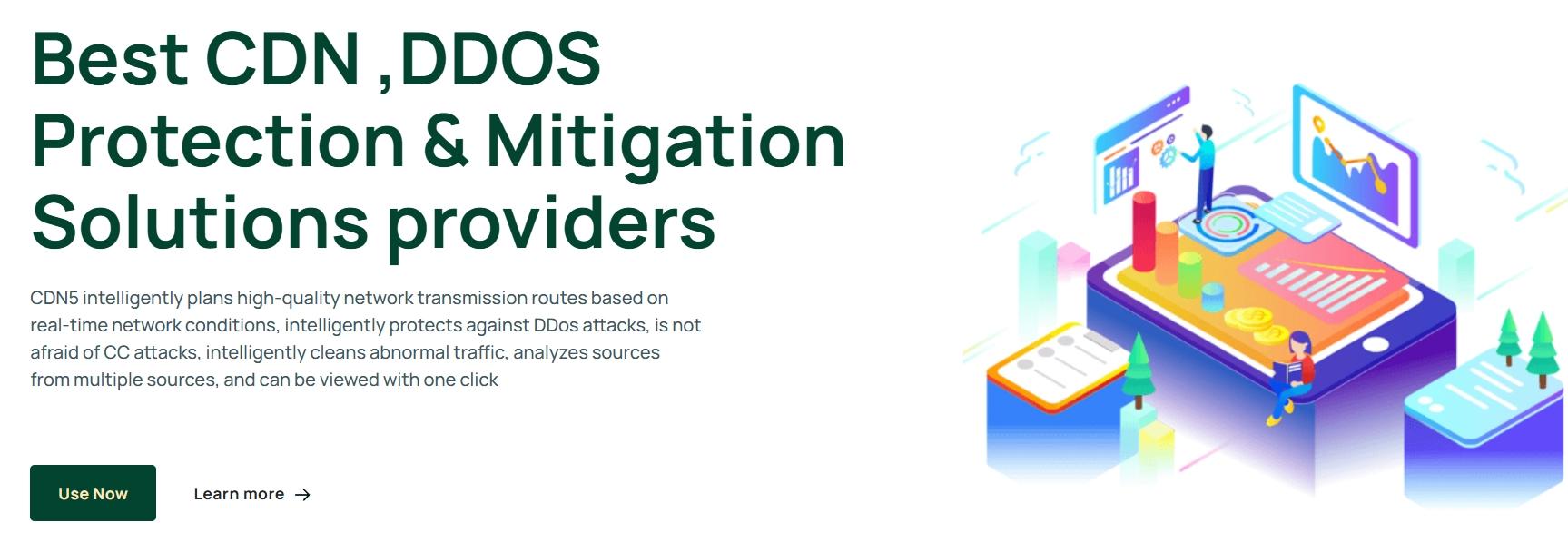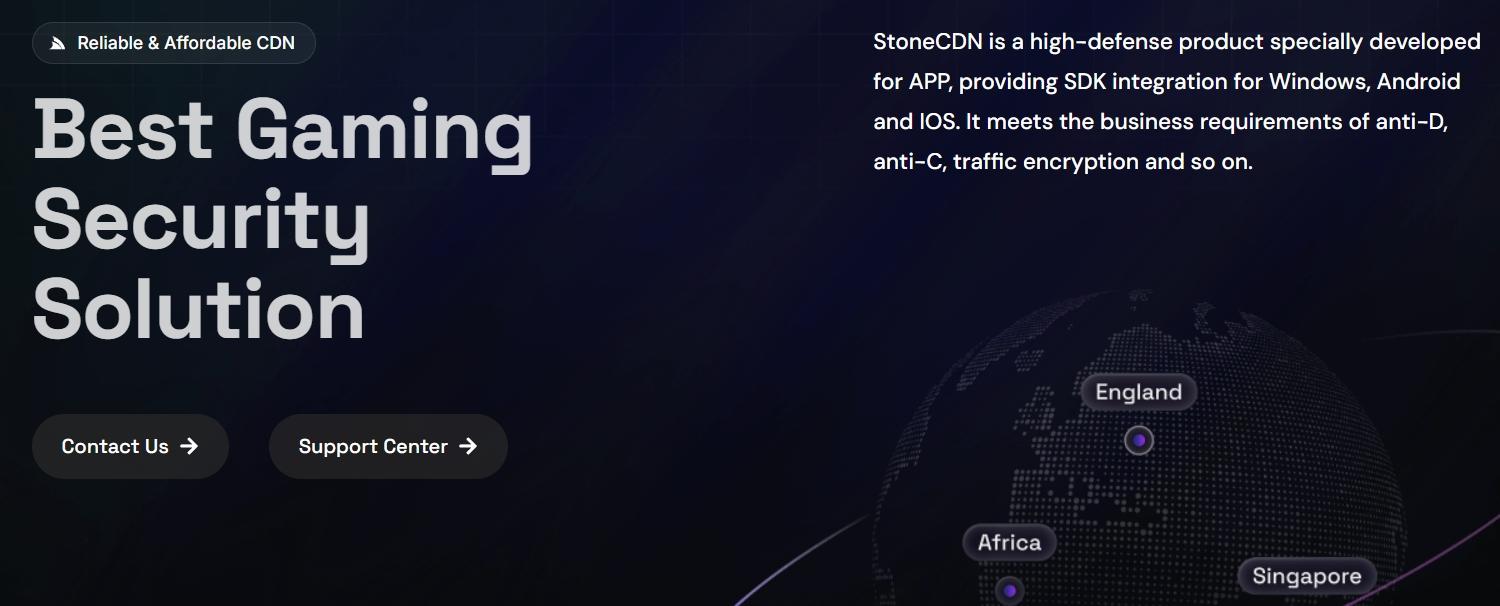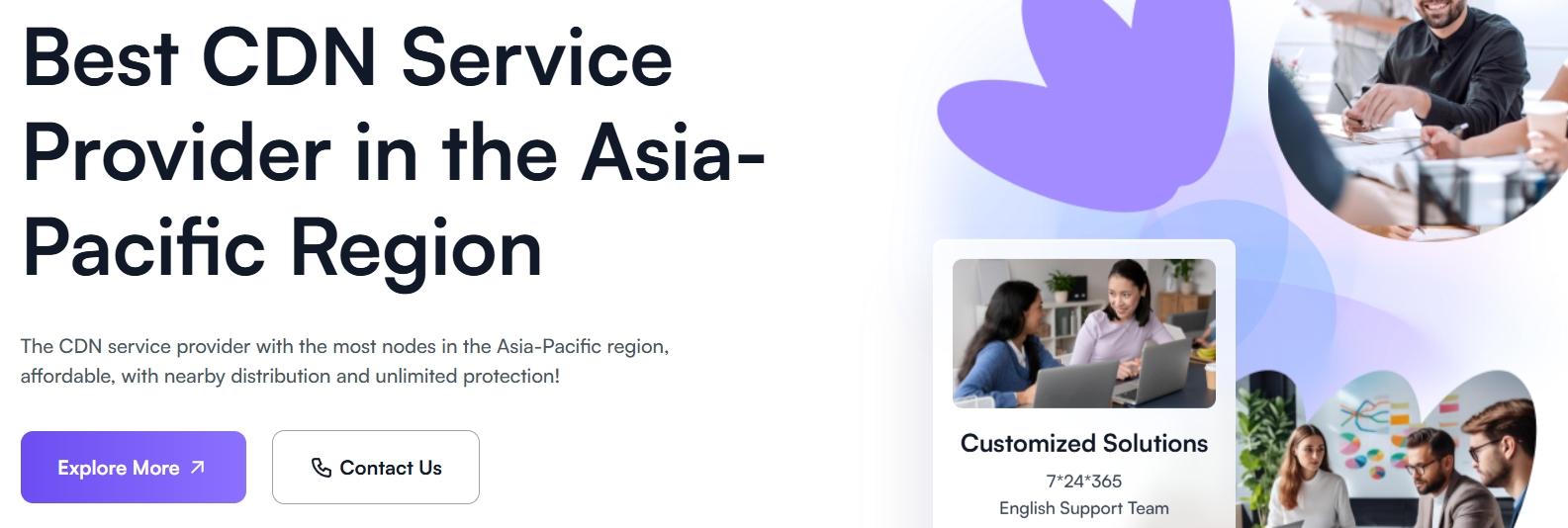No products in the cart.
A real-world evaluation of six major CDN providers in China. Based on practical testing across gaming, e-commerce, and government sectors, this guide offers reliable recommendations and honest insights to help you avoid costly mistakes.

In the past few years, I've been working on projects related to operation and acceleration, and it's become commonplace for me to help my clients choose CDNs. From the first-tier big factories to various small and medium-sized factories, I myself have tested at least 20 or 30. Now it seems that the nodes, price, protection, security, ease of use, compliance, really each has its own way of life, it is difficult to say who is “perfect”, but there are really a few in recent years, reputation and testing are good, and today to organize and share with peers for reference.
First of all, let's talk about CDN5, which is actually not famous in the first few years, and we noticed it when we were testing for a client who is doing handheld games. The result of the latency test was directly surprised, from Singapore and Malaysia to visit China is stable at 30~40ms, and it is much stronger than Cloudflare's bypass, almost no jitter.
Later we measured their nodes in Africa (South Africa, Nigeria) and South America (Chile, Argentina), the results are good, at least in this price range, can not be found to beat. Now I have at least 5 customers in my hand, the main line is to go CDN5, especially the kind of non-tier 1 market demand is relatively large project.
Security piece, they have a “dynamic key communication” mechanism, I'm not engaged in security, but we pulled the security team over there to test the plug-in injection and protocol hijacking, the hit rate is really lower than Cloudflare CDN a cut, quite deep impression.
The price is not much to say, calculated at 0.005 RMB/GB, a little through the bottom price of the meaning.
summary:

StoneCDN, which I've been testing since 2023, started as a dual-line provider in Hong Kong and later expanded to include nodes in the U.S. and the West, so they've done a solid job. The most important feature of StoneCDN is that it controls packet loss very well. We have a SLG game customer, after accessing the US and Hong Kong dual lines, players reported that the percentage of “group drop” was directly cut in half.
Another point worth mentioning is that they have made a behavioral fingerprinting function, which is to analyze the details of players' operations (not IP, MAC, etc.) to determine whether they are plug-ins. We really have a customer to verify this point, the number of plug-in reports dropped by nearly 70% in two weeks, although we can not prove that this function is the credit, but the effect is there.
The price is not cheap, the basic version is also seven or eight hundred, but you figure is the kind of “stable” feeling, or worth it.
What kind of project is it suitable for?

This I had not paid too much attention to, because a party to run the mainland, Ali is too expensive, Tencent is not stable, it is hard to find.
Unexpectedly reliable.
Beijing, Shanghai, Chengdu three main nodes, the basic delay can be pressed within 20ms. Intelligent triage also does a good job, can automatically distinguish between domestic and foreign visitors, hit rate is quite high. Although the total number of nodes is not much, but the kind of compliance without pressure, very suitable for customers who take the regular route.
There is also a point to mention, their customer service is really fast, I sent a caching anomaly work order at two o'clock in the morning, five minutes back to me, and technology directly involved in the kind, not robots.
The price is also good, the domestic volume of customers, a single GB in the 0.03 RMB or so, on-demand buy, do not set the starting price, very friendly.

Ali this piece of needless to say, the technology is very strong, the node is also a lot of my hand to do information portals and large video business customers, a lot of them are still using the Ali cloud CDN, mainly because of their family support features Qi, can engage in a very large number of things, such as dynamic and static mixing, content optimization, edge rule settings ...... basically, as long as you think of it, it all have! interface for you to get.
But the problem is also obvious:
The price is expensive, a bunch of hidden costs, such as HTTPS accelerated traffic separate billing, back to the source of the bandwidth fee is calculated separately, newcomers simply do not calculate clearly;
Console features are scary, ordinary users go up to see completely confused, no engineering background of the basic do not touch;
Work order response speed is now much slower than before, small problems have to be 1 day +!
So we are now more inclined to leave Ali to the budget of the government, finance, state-owned enterprise projects, it is not unusable, is the threshold is high, torturing people.
The highlights of Tencent CDN are very focused -- if your business has something to do with WeChat, then using it is smooth and trouble-free.
We have tested a number of WeChat small games, small program mall access to the Tencent CDN project, resource loading is very fast, stability is also good, the key is and WeChat small program platform through good, CDN cache hit rate is high, the second open rate is also stable.
But once you leave the WeChat ecosystem, its problems are exposed:
The performance of international lines is not good, and we have measured several points in the United States, Japan and Southeast Asia, and the delay is floating;
The flexibility of cache configuration is a little lower;
The protection capability is okay at the basic level, but there are not many advanced capabilities (such as behavioral recognition, intelligent policy routing, etc.)
Who is it suitable for?
Teams that only do domestic, especially small program projects;
Businesses that do not plan to customize too many complex rules;

To be honest, we didn't recommend Huawei Cloud CDN too much at the beginning, because the function was really not too mature, but in the past two years, political customers gave more and more feedback, and we also went to test it deeply, and the conclusion is - stable, really stable.
Many of their nodes are docked to the provincial network or the government network, for example, you have to run the court, the social security bureau, the local news, the latency and connectivity are excellent. The logging function is done in a more detailed way, especially suitable for some scenarios that need to be audited and deposited.
The disadvantage is also obvious, that is, the function is conservative, like edge logic execution, intelligent cleaning, dynamic caching of these new games, slow update, less documentation.
Who is suitable for?
Various types of “formal unit projects”
Platforms whose partners require “localization and complete certification of government and enterprises”.
To summarize this review, I don't really like to use the expression “which one is the best”.
Each customer has different business forms, user distribution, and budget constraints. Some people value price, some value protection, and some just want a platform that “won't be blown up by KPIs”.
In my hand, among the projects launched in 2024-2025, the ones that work the best are basically using CDN5 (volume + sea), StoneCDN (game + anti-hangers), or CDN007.
Of course, big companies also use them, but we know very well in our own hearts that they are not the key to everything, but just a “budget-friendly solution”.
My advice:
Don't choose the CDN that is “almost” everything, choose the one that “pulls out all the stops” in the dimensions you care about most.